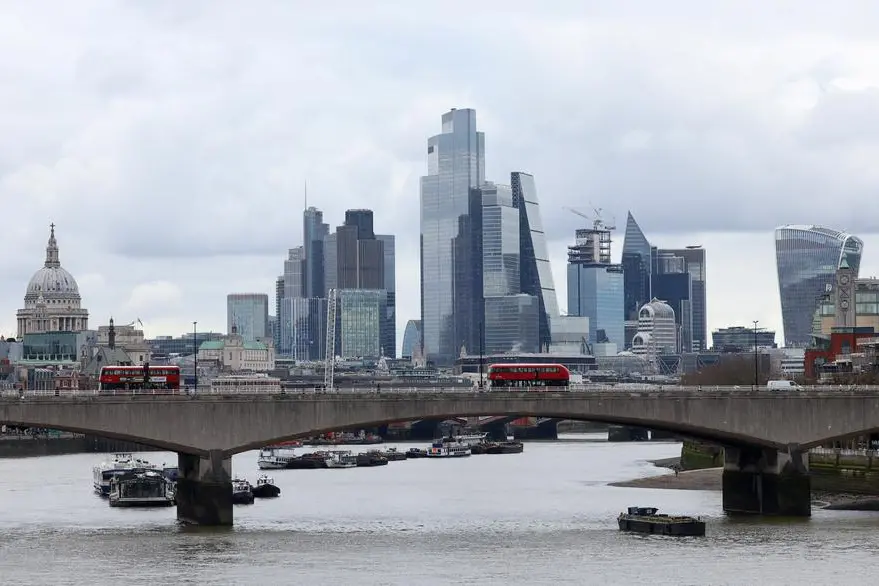PHOTO
LONDON - British inflation held at 2.0% last month, defying forecasts for a slight fall, and strong underlying price pressures prompted investors to rein back on bets that the Bank of England will cut interest rates for the first time since 2020 next month.
Strong increases in hotel prices were partly to blame for the higher-than-expected inflation number, underscoring the BoE's concerns about price pressures in the services sector.
"While these figures provide further reassurance that the UK's inflation crisis is in the rear-view mirror, uncomfortably high services inflation suggests that its damaging after-effects are still being felt," said Suren Thiru, economics director at accountancy body ICAEW.
Economists polled by Reuters had mostly expected that headline consumer price inflation would ease to 1.9% in the 12 months to June, extending its drop from a peak of 11.1% in October 2022.
Inflation for services was 5.7%, the Office for National Statistics said, unchanged from May. The Reuters poll had pointed to a slightly weaker 5.6% increase.
Rate futures showed investors saw a roughly one in three chance of a BoE rate cut on Aug. 1, the date of its next scheduled monetary policy announcement, down from almost 50-50 before the inflation data.
Sterling briefly rose against the dollar after the data was published before returning to just above its pre-release level.
The BoE took comfort from May's fall in consumer price inflation to its 2% target for the first time in nearly three years. But it has expressed concern about the strength of services inflation, which largely reflects pressure from wage growth in a labour market short of candidates to fill jobs.
Data due on Thursday is expected to show wages growing slightly less strongly than in data published a month ago but still rising by almost 6% - roughly double the rate that would be compatible with keeping inflation at 2%.
The BoE is due to announce its next decision on interest rates on Aug. 1 and investors see a roughly 50% chance of a first cut to borrowing costs since 2020.
A rate cut next month would give an early boost to new Prime Minister Keir Starmer and his finance minister Rachel Reeves who have said they will speed up the slow-moving British economy after winning power in a landslide election two weeks ago.
The new Labour Party government's legislative agenda - including its plans to boost growth - is due to be announced in parliament later on Wednesday.
But last week the BoE's Chief Economist Huw Pill said he was focused on persistently strong price pressures and said the timing of the first rate cut was an open question.
Core inflation - excluding volatile food and energy prices - held at 3.5% in the 12 months to June, the ONS said, matching the median forecast in the Reuters poll.
The BoE had expected headline inflation of 2.0% in June and services inflation of 5.1%, according to forecasts it published two months ago. The BoE also expected headline inflation to rise back above its target later this year and through 2025.
The ONS said upward pressures on headline inflation in June included a smaller fall in the costs of second-hand cars than in June last year, as well as the increase in hotel prices.
But clothing prices fell as retailers resorted to discounting to entice shoppers still feeling the impact of a cost-of-living squeeze and wetter-than-usual summer weather.
(Writing by William Schomberg; Editing by Kate Holton and Christina Fincher)





















